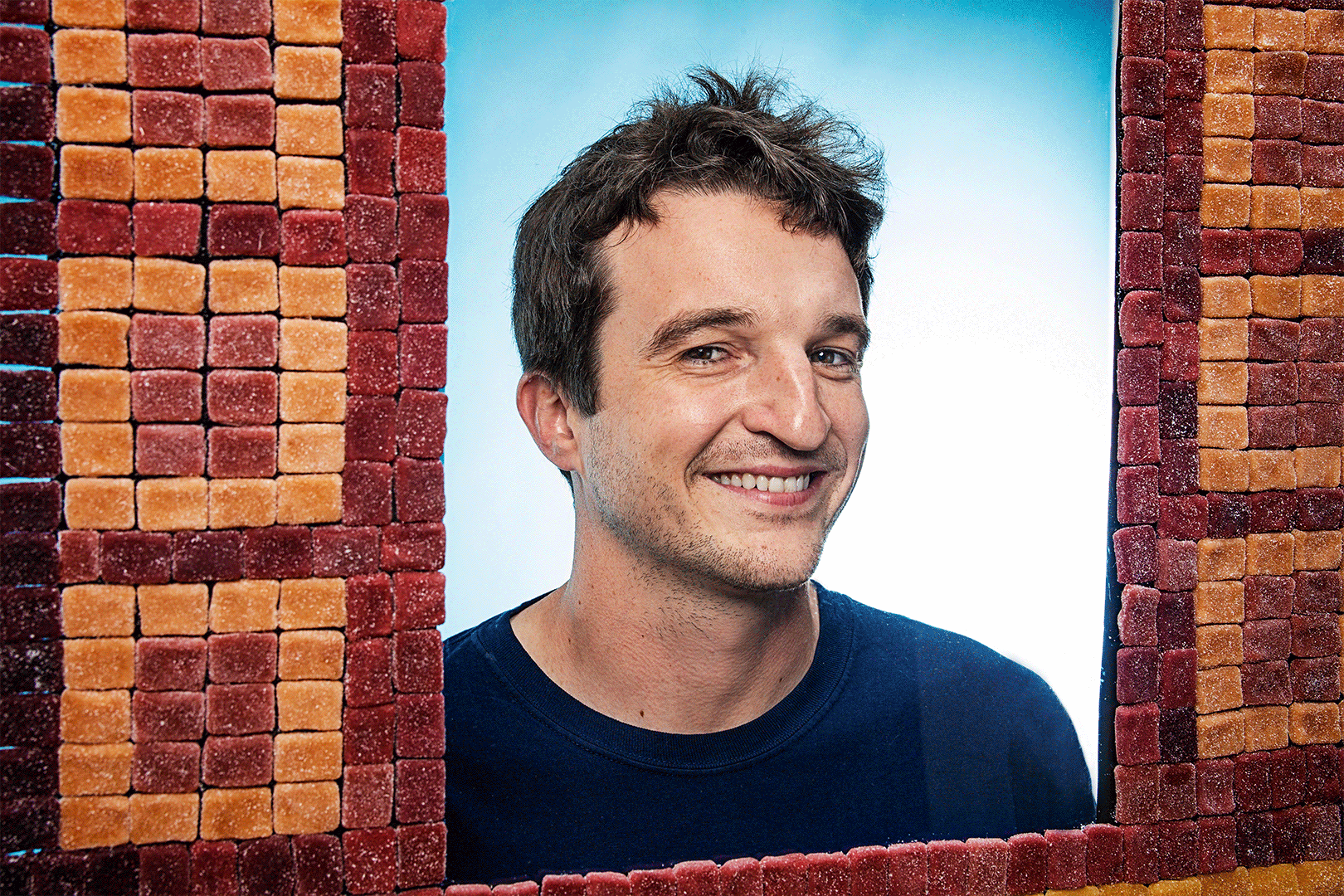In five years, Aaron Morris’ cannabis brand has grown from a bootstrapping startup to dominating the market, thanks to natural fruit gummies and a country hungering to get high. Next up—building the Anheuser-Busch of pot.
When Aaron Morris cofounded Wyld in 2015, his cannabis edibles operation wasn’t that different from a family kitchen the night before a bake sale. Morris and his team set up shop in an old farmhouse in Tumalo, Oregon, down the road from an alpaca ranch. The property was already licensed to grow marijuana but the stove only had one working burner. Morris would boil the syrups in household pots while wearing four layers of gloves to avoid getting burned and combine the other ingredients with a handheld electric mixer, which would inevitably die every few days.
The first batches of THC-infused gummies tasted like “crayons,” says cofounder Chris Joseph. Some even started to grow mold. To improve the recipe, Morris used a technique he found on Reddit, but eventually sought the advice from a gelatin supplier and his gummies started to get better.
“I know nothing about food,” says Morris, a 31-year-old native Oregonian and the CEO of Wyld. “At this point, I know about the commercialization of food, but I’m still a terrible cook.”

Eventually, he perfected recipes for Wyld’s first two flavors—marionberry and raspberry. Every morning going forward, Morris and some hired line cooks would crank out another 1,500 gummies. The third cofounder, Rene Kaza, who had quit his job as a firefighter to join the company, would fill his Honda Civic with their confections three times a week and drive three hours to Portland to deliver shipments to dispensaries.
Today, Wyld is America’s hottest edibles company. It produces the nation’s bestselling cannabis gummies—a high-end candy made with real fruit, including huckleberry, peach and pomegranate. Each package of Wyld, which costs about $20, contains ten gummies with a combined 100mg of THC. This year, the company expects to bring in $65 million in revenue, up from $25 million in 2019. Each month for the last year, Wyld has outsold every edibles brand in the country. The company’s monthly sales have topped $12 million—roughly 800,000 packages of gummies—and Wyld projects $130 million in revenue by 2021, or a fitting 420% increase since 2019.
“We just blew up,” says Morris. “The gummies keep selling, so we keep making more.”
“The hysteria was real. People were buying edibles like they were buying toilet paper.”
If the word-of-mouth popularity of its confections transformed Wyld, the pandemic has sent the brand into overdrive. During the second quarter of 2020, overall edibles sales hit an all-time high of $227 million, according to Seattle-based cannabis market analysis company Headset, thanks to unprecedented numbers of people at home stressed about Covid-19, the economy—and running out of herb. Wyld has been able to capture 14.5% of the $637 million in year-to-date edibles sales across California, Colorado, Nevada and Oregon, according to data from Headset. “The hysteria was real,” says Kaza, Wyld’s sales director. “People were buying edibles like they were buying toilet paper.”

